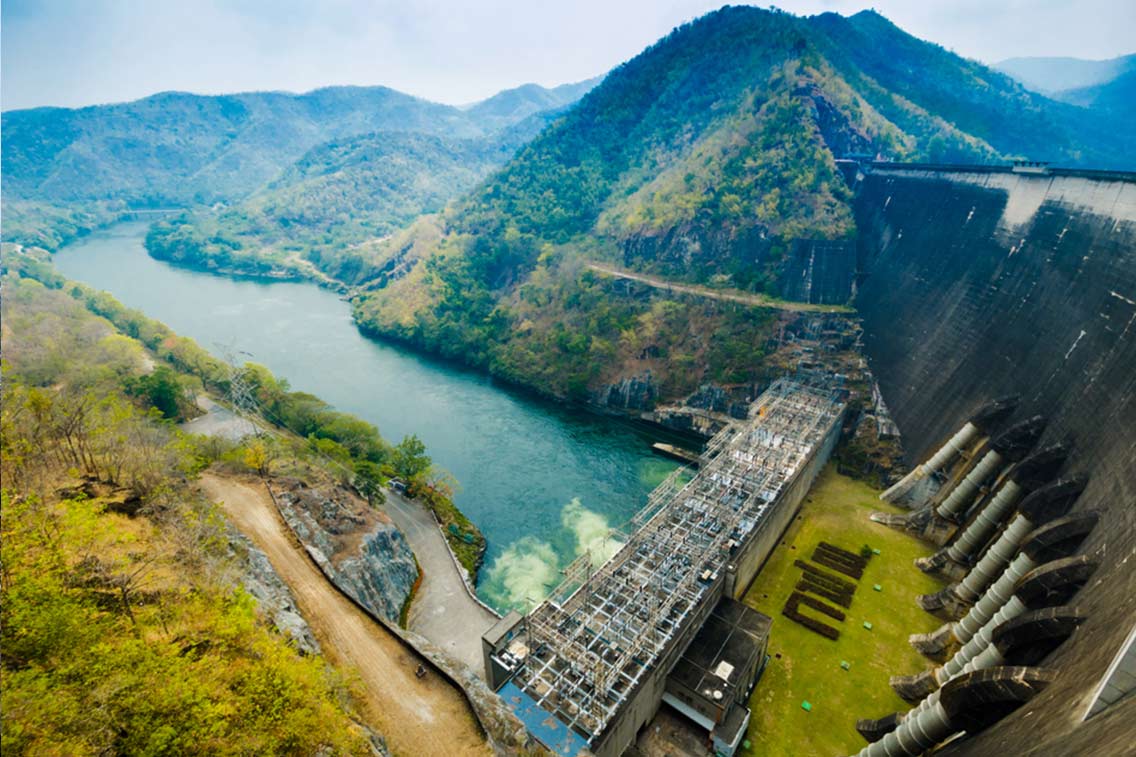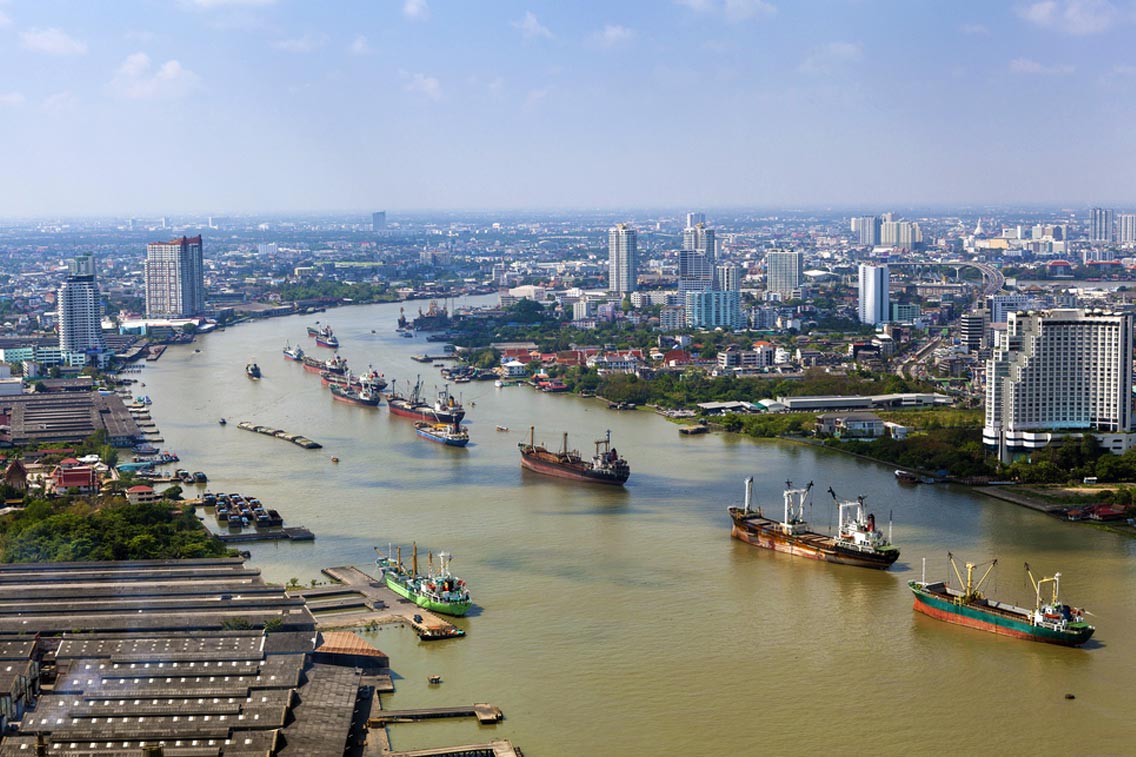The Ping, Wang, Yom and Nan rivers that flow into the Chao Phraya are dependent on the seasonal monsoon rains between May to October. Since the 1950s, the government has built 3,000 dams to store monsoon flows for release in the dry season to exploit the Chao Phraya basin’s vast agricultural potential and to meet the increasing demands of industrial and urban consumers.
The two largest dams constructed to date are the Bhumibol and Sirikit dams. These supply stored water for electricity generation, irrigation and domestic and industrial water use. Together, these two dams control the run-off from 22 per cent of the entire basin.
A number of barrages have also been constructed in the lower reaches of the Chao Phraya basin to control and divert water into canal systems that provide irrigation to an agricultural area of 1.0 million hectares. The delta plain around Bangkok is seldom over two metres above sea level and annual flooding brings rich alluvium to the rice fields in this area.

Read more...
Rice is the predominant crop in the watershed and the famed jasmine is the leading strain of rice farmed in this area. Although jasmine rice is of a superior quality, it has a significantly lower yield rate than other varieties. However, it normally commands double the price of other strains on the global market.
Predominant among other agricultural activities is the farming of the humble shrimp. This is far and wide the most valuable aquatic species currently being produced in the Chao Phraya watershed. Black tiger shrimp production is the most lucrative and this foodstuff provides yearly multi-billion dollar export revenues for Thailand. Other prominent crops produced in the basin include rubber, oil palm, sugarcane, cassava and maize.
Besides crop cultivation and livestock rearing, the river has been an important waterway for centuries for the transportation of the country’s traditional exports of teak and rice to Bangkok for shipment overseas. It is also a location for more modern industrial activities such as the oil giant Shell’s storage depot in the Klong Toey area of Bangkok.
The protection of the Chao Phraya River has become even more critical as demand surges with the continuing expansion of the economy. To address this issue, relevant authorities have instigated proactive measures such as the creation of water management agencies. Most importantly, the constitution has been amended to recognise the importance of local communities’ involvement in water management, as demonstrated by the creation of River Basin Committees. This initiative will help ensure favourable and equitable water resource use.


